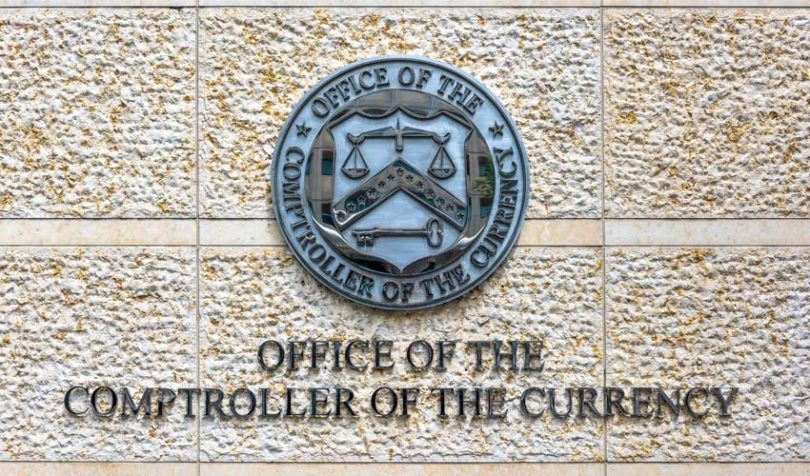Banking regulator, the Office of the Comptroller of the Currency (OCC), clarified its position on the stablecoin and crypto-asset interpretive letters published while Brian Brooks was the acting head. Additionally, the Federal Reserve, OCC, and FDIC outlined a joint roadmap of work.
Together the regulators plan to publish further bank guidance on the following topics in 2022:
- Crypto-asset safekeeping and traditional custody services
- Ancillary custody services – includes staking, facilitating lending
- Facilitation of customer purchases and sales of crypto-assets
- Loans collateralized by crypto-assets
- Issuance and distribution of stablecoins
- Activities involving the holding of crypto-assets on balance sheet
On the latter point, they plan to assess bank capital requirements if banks plan to hold crypto-assets. Meanwhile, at an international level, the Basel Committee has been working on similar capital requirements.
While much of these issues will be relevant for incumbent banks looking to get into the crypto-asset and stablecoin space, it will certainly impact some of the unicorn startups in the sector.
For example, VISA-backed Anchorage is a chartered trust bank best known as a custody provider. Apart from offering cryptocurrency custody services, it also provides crypto staking and facilitates crypto lending. It works with Silvergate bank, which provides the loans collateralized by crypto-assets.
Another unicorn, stablecoin firm, Circle has said it plans to become a bank. A major planned business model is to facilitate loans for stablecoin holders. Circle’s growth over the last 18 months has been significantly driven by the use of its digital currency for DeFi lending as well as centralized lending. And it helps to facilitate both.
In April of this year, Paxos received preliminary approval as a federally chartered trust bank. It provides cryptocurrency brokerage services to the likes of PayPal and runs a Stablecoin-as-a-Service offering. Cryptocurrency exchange Binance has the third largest stablecoin, which is powered by Paxos.
OCC clarifies previous letters
Additionally, the OCC issued a new interpretive letter, which states that for stablecoin and crypto custody activities, a bank first has to notify the OCC and receive a letter stating there’s no objection. If they are already active, a no-objection letter is not required, but they should inform their OCC supervisor. Every bank has to review the risks associated with the activity thoroughly, and this will be taken into account by the OCC. A bank has to ensure it can execute in a “safe and sound” manner.
Last year the OCC published letters saying that banks can participate in cryptocurrency custody, hold reserves that back a stablecoin or participate in a stablecoin blockchain network.
Saule Omarova is Biden’s nominee to head the OCC. Here’s a tweet she wrote when the OCC published the letter about crypto custody last July.






